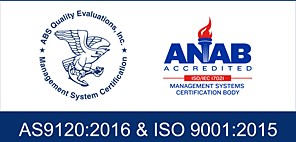ZIRCONIUM VS. TITANIUM
If you’re looking for a metal to use in your equipment, you probably have thought about steel and titanium. They are both strong, durable and resistant to a variety of chemicals.
Titanium, however, weighs a fraction of what steel weighs. To have the same strength with less weight, titanium seems like an ideal combination.
The biggest drawback to titanium is the price. The superiority of titanium over steel will cost you.
But oftentimes, another similar metal often gets overlooked: Zirconium.
Can zirconium be an adequate alternative to titanium?
Zirconium and titanium do share many desirable characteristics, most notably their durability and corrosion resistance.
Below is some additional information about zirconium and titanium to help you spot the pros and cons of each one and decide which one is best for your specific project:
ZirconiumZirconium is a naturally occurring element that is in a solid state at room temperature. It has a melting point of 3,362 degrees Fahrenheit and a boiling point of 7,952 degrees Fahrenheit. Its density is 3.77 ounces per cubic inch.
Zirconium Pros and ConsPros
- Can be used as one-piece design in medical and dental treatments
- Has slightly better durability and inflexibility
- Is more hypoallergenic
- Doesn’t attract as much bacteria
- Less likely to corrode with water and chemicals
- Has very low toxicity
Cons
In its powder form, Zirconium is unstable and can spontaneously ignite in air. This characteristic can limit the industries Zirconium can be used in.
While low levels of Zirconium are safe, and is found in the human body, high level and constant exposure to the metal can cause damage to the eyes and lungs and can be fatal.
Industry UsesZirconium’s strength, corrosion resistance and durability make it ideal for use in pipes, fittings and heat exchangers, steel alloys, colored glazes, bricks, ceramics, abrasives, flashbulbs, lamp filaments, artificial gemstones and some deodorants.
Zirconium is also used in in surgical instruments, jewelry, lab crucibles, television glass, surgical instruments and catalytic converters.
Zirconium’s lack of attracting particles make it a popular option for use in nuclear power plants.
At one time, Zirconium was even used to treat poison ivy, before skin irritations became linked to possible side effects.
TitaniumTitanium has become a popular metal in the chemical, medical and military industries because of its strength, durability, corrosion resistance and light-weight. It has a similar melting point as Zirconium (3,000 degrees Fahrenheit). It is also paramagnetic and displays fairly low electrical and thermal conductivity.
Titanium Pros and ConsPros
- Light-weight
- Has limited magnetic properties
- Has low electrical and thermal conductivity
- Durable and long-lasting
- Is corrosive resistant to many acids and bases as well as salt water
Cons
- One of the more expensive types of metal
- Hard to cast
- Not as flexible, hypoallergenic, or bacteria resistant as Zirconium.
IndustriesTitanium’s light-weight, strength and resistance to corrosion has made it popular in use of a variety of industries including medical, dental, manufacturing, chemical processing, aerospace, military, golf, automotive and nuclear power plants.
Which One is Better?Both Zirconium and titanium are strong, long-lasting, corrosion-resistant metals that are ideal for many demanding projects. In most cases, either one would work. Titanium is more expensive, but the demand for Zirconium is increasing, which may lower the cost of titanium.
Some industries, such as in dentistry, now prefer Zirconium because of its low electrical conductivity and better hypoallergenic properties.
At Titanium Processing Center, we have both Zirconium and titanium available for your project. Get a free INSTAQUOTE today!


